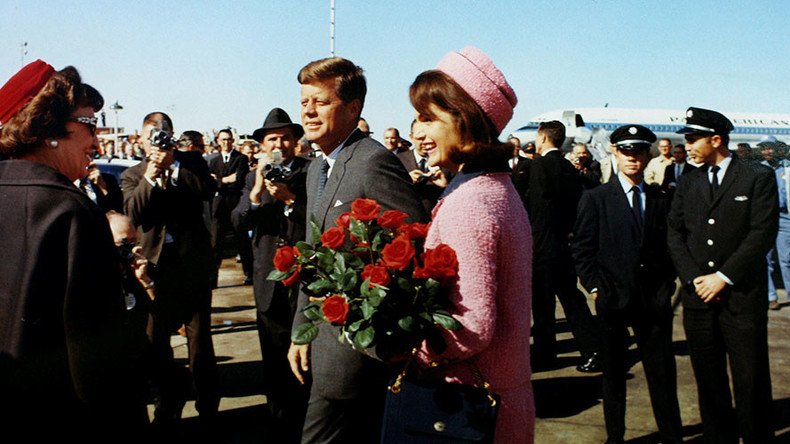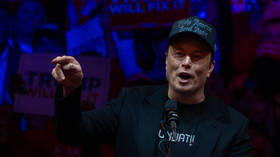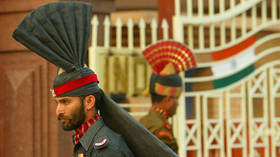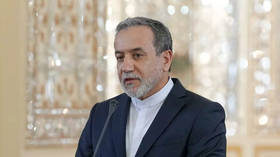JFK files: Soviets feared ‘irresponsible US generals’ would attack after assassination

The US National Archives released thousands of long-awaited secret documents about the assassination of John F. Kennedy on Thursday.
A portion of the documents have, however, been withheld by President Donald Trump on the advice of the FBI and CIA, the AP reports. Here are the key revelations contained in the papers released so far:
Soviet fear of all-out war
The Soviet Union feared that the assassination of John F. Kennedy would lead to all-out war between it and the United States.
A CIA source cited in the documents claimed that officials in the Communist Party believed the killing was part of a conspiracy by the “ultra-right” in the US, and were concerned that “without leadership, some irresponsible general in the US might launch a missile at the Soviet Union.”
Soviet officials also described assassin Lee Harvey Oswald as “a neurotic maniac who was disloyal to his own country,” and played down the significance of his time within the Union.
#Trump says he had 'no choice' but to accept FBI & CIA concerns to delay long-awaited #JFK assassination docs https://t.co/04AKqBlbdspic.twitter.com/FWJRxrbwZV
— RT (@RT_com) October 27, 2017
FBI’s case against Oswald
Hoover was critical of the Dallas Police Department’s handling of the case, saying it could not have brought charges without the FBI’s involvement. “We traced the weapon, we identified the handwriting, we identified the fingerprints on the brown bag,” he said, adding that senior police had been seen too much on television.
The FBI director, working with then Deputy Attorney General Nicholas Katzenbach, was also eager to release information on the event “so we can convince the public that Oswald is the real assassin.” Oswald’s death was “inexcusable” following the FBI’s warnings, Hoover said, and added that it would open the door to elements who would “holler their heads off that his civil rights were violated – which they were.”
‘Cease looking happy in public’
Cuban diplomats were ordered to “cease looking happy in public” following the killing of JFK.
According to one document, Cuban Ambassador Cruz was said to have reacted with “happy delight” after hearing news of the assassination, but became concerned when details filtered through of Oswald’s connections to a leftist Cuban activist group.
In a cable sent to Cuba’s consulates and trade offices in Toronto and Montreal, the ambassador said diplomats should adopt a more somber mood in public in order to reflect the government’s official attitude to the death.
FBI was tracking Oswald before assassination
Oswald was being tracked by the New Orleans division of the FBI in October 1963 – the month before the assassination took place.
An FBI report into the New Orleans division of the Fair Play for Cuba Committee said that, while the committee had been inactive since Oswald left the city, the bureau was planning to stay in contact “with Cuban sources for any indication of additional activity.”
Copies of the report were sent to FBI divisions in New York and Dallas, the city in which Kennedy was killed.
Oswald’s meeting with ‘KGB officer’
While Oswald’s visit to the Soviet Embassy in Mexico City in September 1963 had not been a secret, the files revealed that he had spoken with Consul Valeriy Vladimirovich Kostikov, described in the documents as “an identified KGB officer.”
READ MORE: JFK assassination: What was Lee Harvey Oswald doing in the USSR?
“He is a case officer in an operation which is evidently sponsored by the KGB’s 13th Department (responsible for sabotage and assassination),” the document read.
On October 1, Oswald was said to have rang the embassy and asked: “Anything new concerning the telegram to Washington?”
FBI warned Dallas police of threats against Oswald
The FBI received a call to its Dallas office from a man claiming to be a member of a committee organized to kill Lee Harvey Oswald, according to a memo sent on the day of the assassin’s death by FBI Director J Edgar Hoover.
“We at once notified the Chief of Police and he assured us Oswald would be given sufficient protection,” the document read. Hoover added: “This morning we called the Chief of Police again warning of the possibility of some effort against Oswald and he again assured us adequate protections would be given. However, this was not done.”
The document also states that the FBI had an agent at Parkland hospital, where Oswald was taken after he was shot, in the hope that he might make a confession before he died. He did not do so. Meanwhile, his attacker, Jack Ruby, was said to have told authorities that his grief over the killing of President John F Kennedy two days earlier had made him insane. Hoover labelled the claim “a pretty smart move” as it could have laid the foundation for a plea of insanity at his trial.
Who killed JFK? RT takes a look at some of the main theories https://t.co/gFRzYsFOej
— RT (@RT_com) October 26, 2017
Ruby’s connections with Dallas police
An informant told the FBI that Oswald’s assassin, Jack Ruby, had close links to local police in Dallas. Ruby, whose real name was Jacob Leon Rubenstein, was said to have had a “good in” with the authorities, who were served free drinks at his nightclub.
A friend of Ruby’s, Lou Lebby, described him in an FBI document as “emotional, unstable and a person who made his living primarily from ‘scalping’ tickets to sports events.”
British paper warned of ‘big news'
According to a memo from the CIA’s deputy director to the head of the FBI, a senior reporter in the Cambridge News in England received an anonymous phone call, saying he should contact the American Embassy in London for “some big news,” before abruptly hanging up.
READ MORE: English newspaper ‘tipped off’ 25mins before JFK assassination, documents show
After news of the assassination broke, the reporter called Cambridge police, who in turn logged the call with MI-5. It calculated that the call was made about 25 minutes before JFK was shot. The reporter never received such calls before, and was known to authorities as “sound and loyal."












